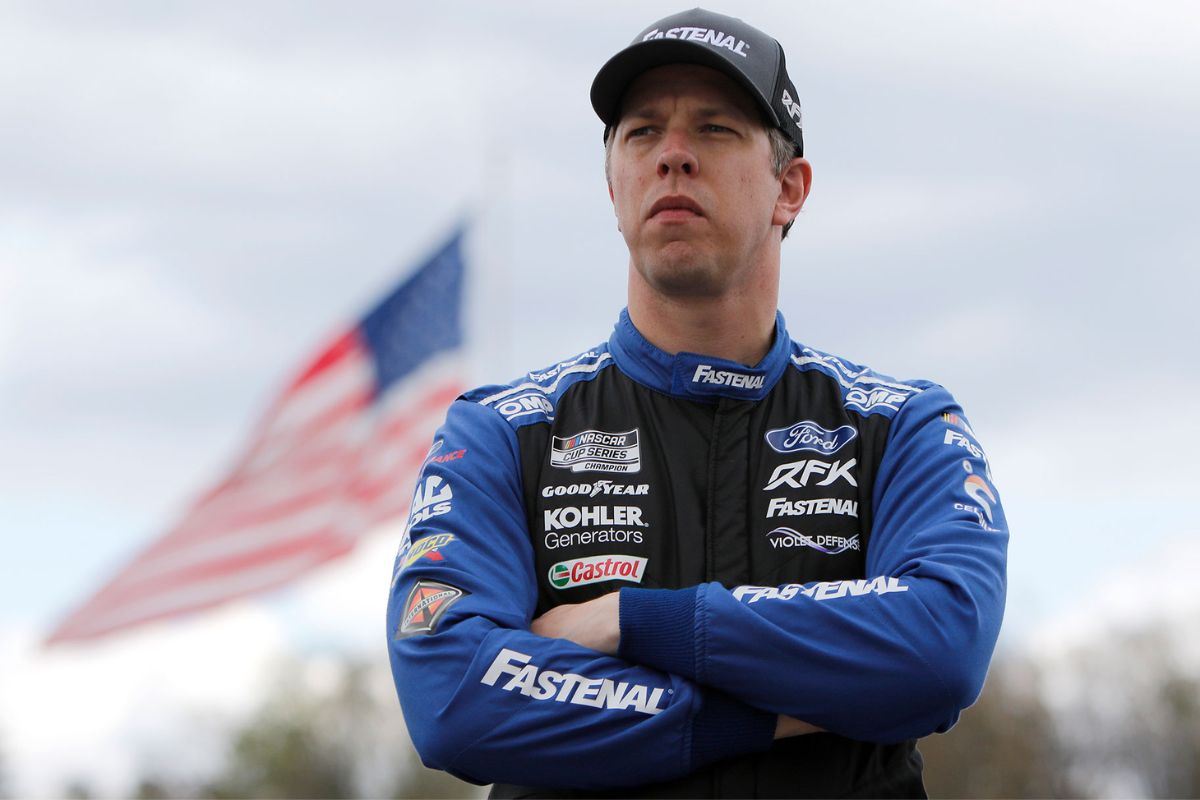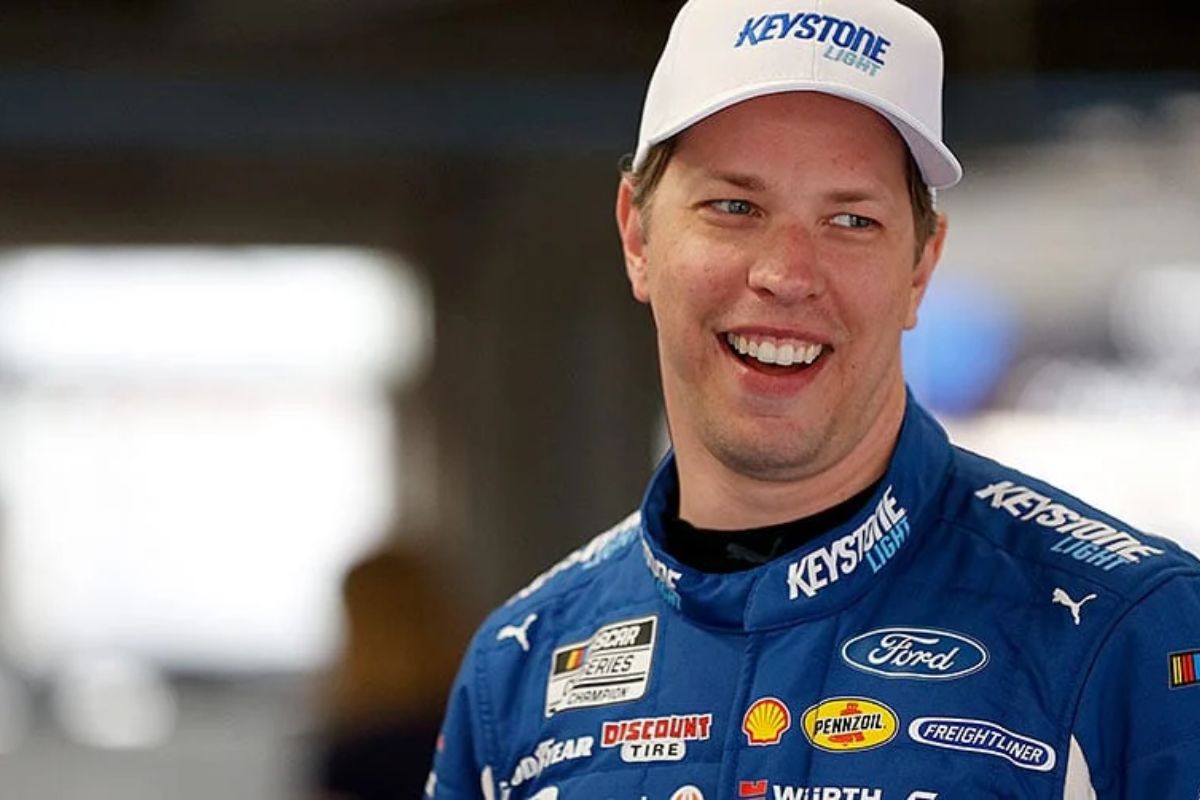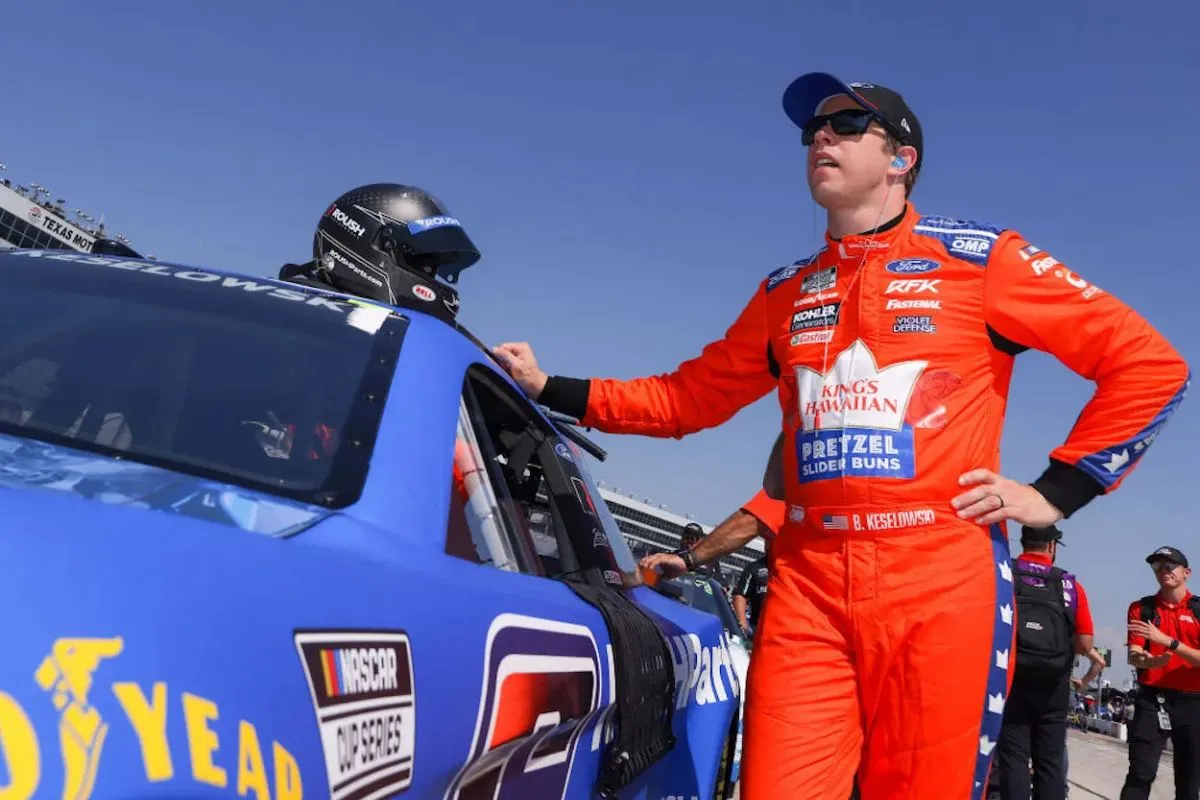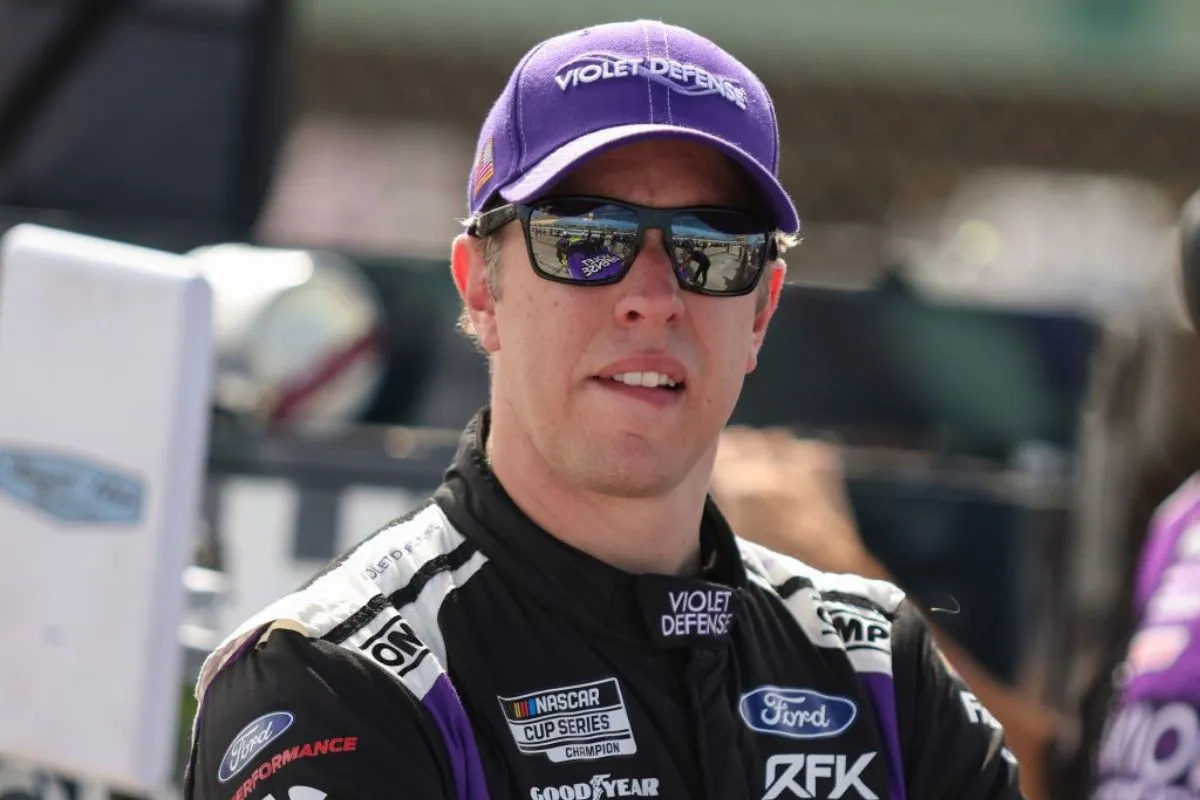Brad Keselowski Plans RFK Expansion: Brad Keselowski’s recent announcement concerning RFK Racing’s expansion outlines a visionary future, emphasizing strategic growth, technological innovation, and talent development. Facing the intricate challenge of Charter acquisition—a cornerstone for competitive participation—Keselowski’s approach combines ingenious negotiation with determined optimism. Managing partner dynamics and overcoming logistical hurdles highlight the complexity of strategic expansion. Keselowski’s strong positivity, aimed at securing Charter agreements before the 2025 Daytona 500, signals a forward-looking strategy rooted in resilience and thoughtful management. This bold move could redefine RFK Racing’s trajectory, suggesting intriguing developments ahead for those keen on the intricacies of NASCAR dynamics.
Key Takeaways
- Keselowski unveiled RFK Racing’s expansion plans focusing on strategic growth and competitive edge.
- The team faces challenges in securing additional Charters and managing partner relationships.
- RFK Racing is investing in cutting-edge technology and talent scouting for its expansion.
- Keselowski is optimistic about securing a Charter agreement before the 2025 Daytona 500.
- Confidence and resilience are key aspects of RFK’s strategy for overcoming expansion challenges.
Keselowski’s Expansion Ambitions
During a recent media event at NASCAR Production Studios, Brad Keselowski, the ambitious co-owner of RFK Racing, disclosed his vision for the team’s expansion, emphasizing strategic growth and enhanced competitive edge. Keselowski’s remarks highlighted a forward-looking strategy, not just aimed at scaling the operations but also at fundamentally transforming RFK Racing into a more formidable contender within the NASCAR circuit. His insights suggest a deep understanding of the competitive landscape and a clear vision of where he wants to steer the team in the coming years.
Keselowski’s approach is not merely about adding numbers or resources but is centered on cultivating a culture of innovation and excellence. By focusing on strategic growth, Keselowski is looking beyond the immediate horizon, aiming to build a legacy that transcends the usual metrics of success. This involves investing in cutting-edge technology, scouting and nurturing talent, and fostering a team environment where excellence is not just expected but ingrained.
The ambition articulated by Keselowski resonates with a broader narrative within the motorsports industry, where teams are increasingly recognizing the importance of strategic planning and resource optimization. RFK Racing, under Keselowski’s stewardship, is positioning itself to not just participate in the race but to redefine it. His expansion plans reflect a blend of audacity and pragmatism—a combination that could very well set a new benchmark for success in NASCAR.

Challenges Ahead for RFK Racing
As RFK Racing begins its ambitious expansion journey, the team encounters substantial challenges, particularly in securing additional Charters and managing partner considerations. These hurdles, as outlined by Brad Keselowski, are not trivial and require a strategic approach to navigate effectively. The complexity of expanding beyond the current two-car full-time operation involves not just logistical and operational considerations but also the intricate dynamics of NASCAR’s Charter system and the delicate balance of partner relationships.
Expanding a racing team is akin to scaling a high-precision enterprise. Each step must be calculated with precision, considering the ramifications on performance, team culture, and financial health. For RFK Racing, the challenges extend beyond the racetrack. The team must engage in a delicate dance with partners and stakeholders, ensuring that expansion efforts align with their interests and expectations. This balancing act involves not just securing the necessary financial investment but also maintaining the quality and competitiveness of the team’s performance.
Moreover, the issue of Charter availability, while not explored in detail here, underpins the entire expansion endeavor. It represents a critical piece of the puzzle, influencing not only the feasibility of adding more cars to the team’s lineup but also impacting strategic decisions regarding driver selection, sponsorship acquisition, and long-term planning.
The Charter Conundrum
Navigating the complexities of NASCAR’s Charter system emerges as a formidable challenge for RFK Racing’s expansion ambitions, highlighted by Keselowski’s emphasis on the necessity for additional Team Charters beyond 2024. The NASCAR Charter system, designed to guarantee entry for 36 cars in every Cup Series race, thereby ensuring a level of financial stability and planning certainty for teams, poses a unique puzzle for RFK Racing as it eyes growth. The scarcity of available charters introduces a significant roadblock, showcasing the strategic finesse required to navigate this landscape.
- Limited Availability: Charters are rarely on the open market, making acquisition a rare and often costly endeavor.
- Strategic Importance: Securing a charter is not just a transaction; it’s a strategic move that guarantees participation in the sport’s most lucrative races, offering a direct lifeline to sponsorship and revenue opportunities.
- Future Planning: Beyond the immediate competition, charters are vital for long-term planning and team development, impacting decisions from driver recruitment to technical investment.

This scenario places RFK Racing at a crossroads, where the pursuit of expansion is not just about financial investment but also about strategic acumen. The need to secure additional charters beyond 2024 is more than a hurdle; it’s a critical component of the team’s future success and sustainability within the NASCAR ecosystem. As RFK Racing contemplates its next moves, the charter conundrum remains a crucial aspect of its strategy, reflecting the complexity and competitive nature of NASCAR’s highest echelons.
“Yeah, we would need the right kind of storm to brew with Charter availability and partner availability,” ( Brad )
“I think there’s some opportunities with some talent out there, but the other two pieces realistically have to come first.” ( Brad)
“I can’t say I’m every day working on it. In fact, I can say the exact opposite. I’m not every day working on it, like [Steve Newmark] is.” ( Brad )
Navigating Negotiations
In NASCAR, managing the future of Team Charters beyond 2024 becomes a vital task for RFK Racing, with Keselowski closely observing the proceedings while entrusting the hands-on negotiation efforts to his experienced team management. This strategy reflects not only Keselowski’s confidence in his team’s negotiating prowess but also highlights the multi-faceted approach required to maneuver the complex dynamics of NASCAR’s evolving landscape. The negotiations are not just important; they are strategic moves on a chessboard, where each decision could greatly impact RFK Racing’s future positioning and competitiveness.
The ongoing discussions between NASCAR and the Race Team Alliance carry profound implications for the sport’s structure and the economic model underpinning team operations. For RFK Racing, adeptly managing these negotiations is paramount. The team’s management is tasked with safeguarding RFK’s interests, ensuring that the outcomes of these talks align with Keselowski’s vision for expansion and sustained success. This involves a delicate balance of asserting their needs while remaining adaptable to the broader changes shaping NASCAR’s future.
Moreover, the ability to effectively delegate these critical negotiations to team management speaks to Keselowski’s leadership style and his strategic approach to team expansion. It highlights the importance of having a skilled team off the track as much as on it, capable of guiding the organization through the turbulent waters of change with foresight and finesse. As RFK Racing manages these crucial negotiations, the team’s trajectory hinges on the outcomes of these discussions, setting the stage for the next chapter in its storied legacy.
Optimism Amid Uncertainty
Despite the intricate landscape of negotiations, Keselowski’s unwavering positivity shines as a beacon for RFK Racing’s future, particularly as the team edges closer to the pivotal 2025 Daytona 500. This positivity isn’t just a morale booster; it’s a strategic asset that highlights the resilience and forward-thinking approach at the heart of RFK Racing. Keselowski’s confidence in securing a Charter agreement before the landmark race speaks volumes about his leadership and vision for the team.
The significance of Keselowski’s optimism can be distilled into three key points:
- Strategic Vision: Keselowski’s positive outlook acts as the cornerstone of RFK Racing’s strategic planning. It’s a clear signal to stakeholders, including sponsors, team members, and fans, that the team is on a steady course toward growth and success, despite the ongoing uncertainties in the negotiation process.
- Resilience in Adversity: The ability to remain optimistic in the face of prolonged negotiations showcases a remarkable resilience. It’s this resilience that will likely play a critical role in maneuvering through the complexities of the agreements, ensuring that the team emerges stronger and more unified.
- Inspiring Confidence: Keselowski’s optimism serves not only as a personal mantra but also as a source of inspiration for the entire team. It fosters a culture of confidence and determination, vital elements for achieving breakthroughs in high-stakes environments like professional racing.

“I don’t know. Maybe I’m fighting bigger fires, but this is not at the top of my list of things to be concerned about,” ( Brad )
News in Brief
The growth aspirations of Brad Keselowski for RFK Racing highlight a strategic vision aimed at enhancing the team’s competitive edge within the NASCAR series.
However, this endeavor is not without its challenges, particularly the acquisition of charters and the intricacies of negotiation processes.
Despite these hurdles, there remains a clear sense of optimism.
The outcomes of these ambitious plans are poised to greatly impact the team’s future trajectory and potentially reshape its standing in the motorsport arena.
Our Reader’s Queries
Q: Who is majority owner of RFK Racing?
A: RFK Racing, based in Concord, North Carolina, competes in the NASCAR Cup Series. Owners include Jack Roush, John W. Henry (Fenway Sports Group), and driver Brad Keselowski. The team’s race drivers are Brad Keselowski (No. 6), Chris Buescher (No. 17), and part-time driver David Ragan (No. 60).
Q: What company does Brad Keselowski own?
A: Brad Keselowski’s passion for innovation extends beyond the racetrack. In 2018, he founded Keselowski Advanced Manufacturing, specializing in additive metal manufacturing and advanced engineering solutions, showcasing his commitment to technology both on and off the track.
Q: Who sponsors Brad Keselowski?
A: Consumer Cellular is set to sponsor Brad Keselowski in multiple NASCAR Cup Series races starting in 2024, as announced by RFK Racing on January 24. While the deal spans multiple years, the exact length has not been disclosed, marking a significant partnership for Keselowski and the team.
Also Read:Brad Keselowski Teases New Manufacturer Arrival: Insider Scoop!


